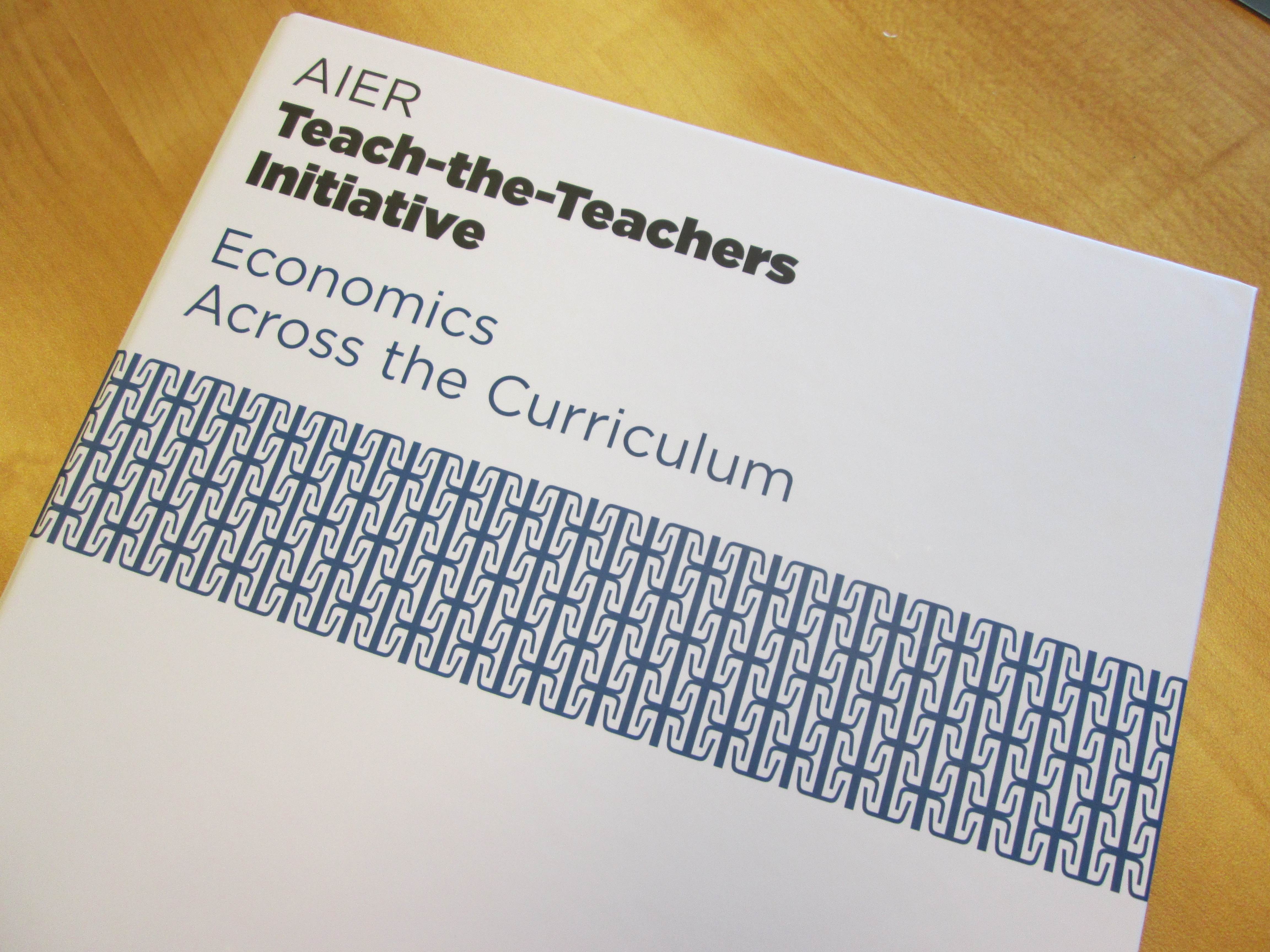Teach-the-Teachers Initiative Goes on the Road
Last week The Economist published the cover page story and an issue brief showcasing new (and old) evidence that the craft of teaching can be perfected through professional development opportunities for teachers. Here at the American Institute for Economic Research, we are doing just that – teaching the teachers how to incorporate economic concepts into their subjects, to make the material relevant, intriguing, and interesting to students.
We designed a professional development workshop with the understanding that a teacher who has a strong knowledge of content and pedagogy will be able to inspire students to think critically, to engage with the material, and to apply their knowledge.
After piloting the program at the AIER campus in the Berkshires for the past two years, we are moving to the national stage. On June 27, 42 teachers from the Boston metropolitan area, as well as from Western Massachusetts, the Syracuse area in New York, and New Jersey begin their exploration of Economics Across the Curriculum.
This program is presented in collaboration with the Massachusetts Council on Economic Education, and is hosted at the Federal Reserve Bank of Boston. The program is interactive, allowing for discussions, hands-on exercises, and explorations of data sources. The participants learn basic economic concepts, participate in demonstrations where they will pretend to be students, examine data sets, and generate and discuss lesson ideas. It sounds fun, and it is. However, the underpinnings of this active learning approach are based on solid scientific evidence of the most effective ways to reach students.
At the end of the workshop, every teacher makes a presentation to the group, and to a panel of judges, showcasing an idea that integrates an economic concept into their curriculum or classroom. In the past, I was amazed how creative the teachers have been in the adaptation of the material to their classroom needs; how they adjust the curriculum of a non-economic field to incorporate an economic concept; and how they care about their students’ learning.
This year the diversity of subject areas taught by the teachers registered for the Boston program is impressive. There are teachers of economics, history, mathematics, entrepreneurship, financial literacy, civics, biology, and environmental sciences, to name just a few disciplines. As we welcome our new class, we are excited about the many opportunities to teach economics as part of various disciplines. As teachers meet their students in the classroom in the fall, we expect the impact of our program to grow, as students become better thinkers, better decision makers, and better citizens.
Our next workshops will be in Chicago (July 11-13) and Philadelphia (August 4-6). Visit the AIER web site for more information.
Click here to sign up for the Daily Economy weekly digest!









